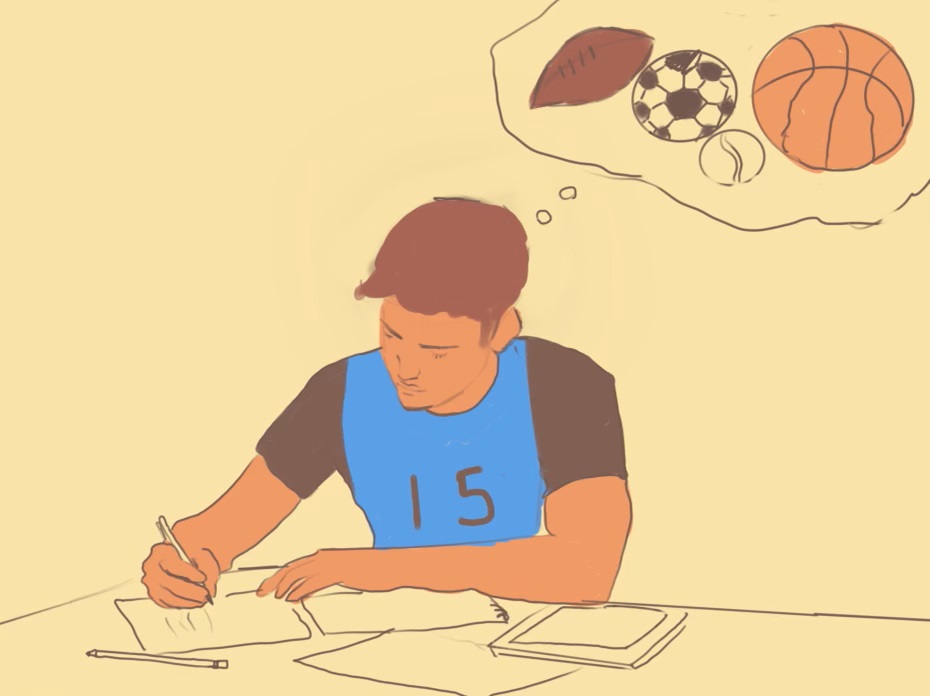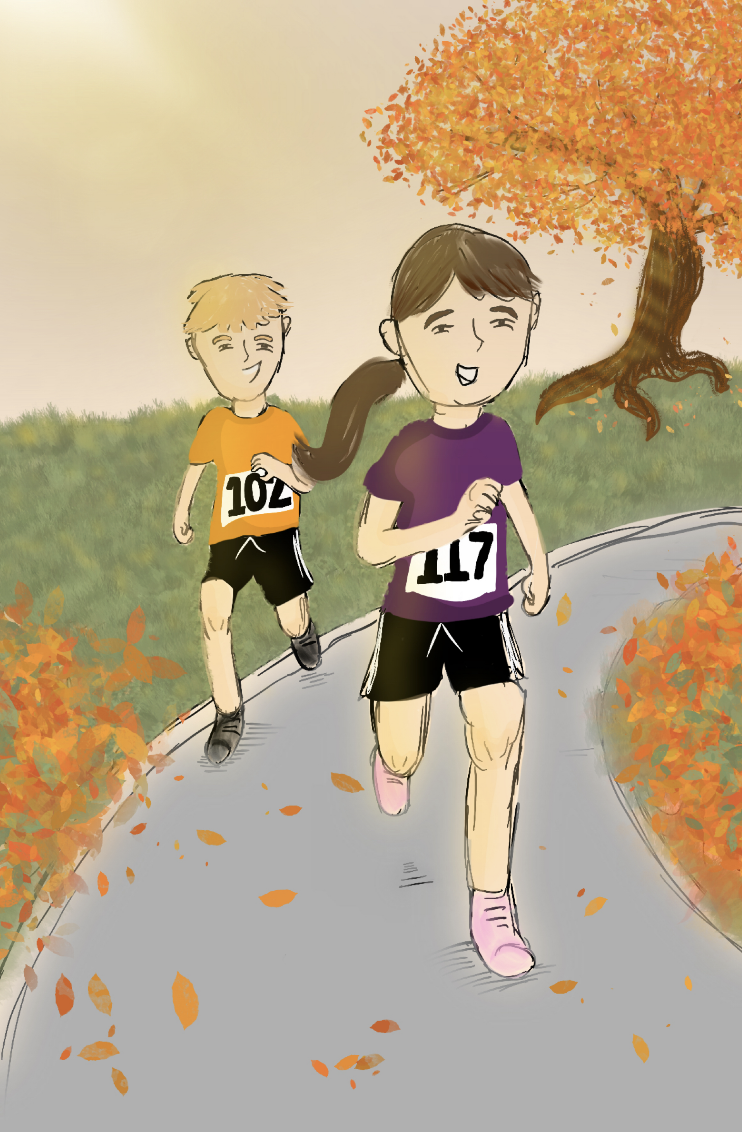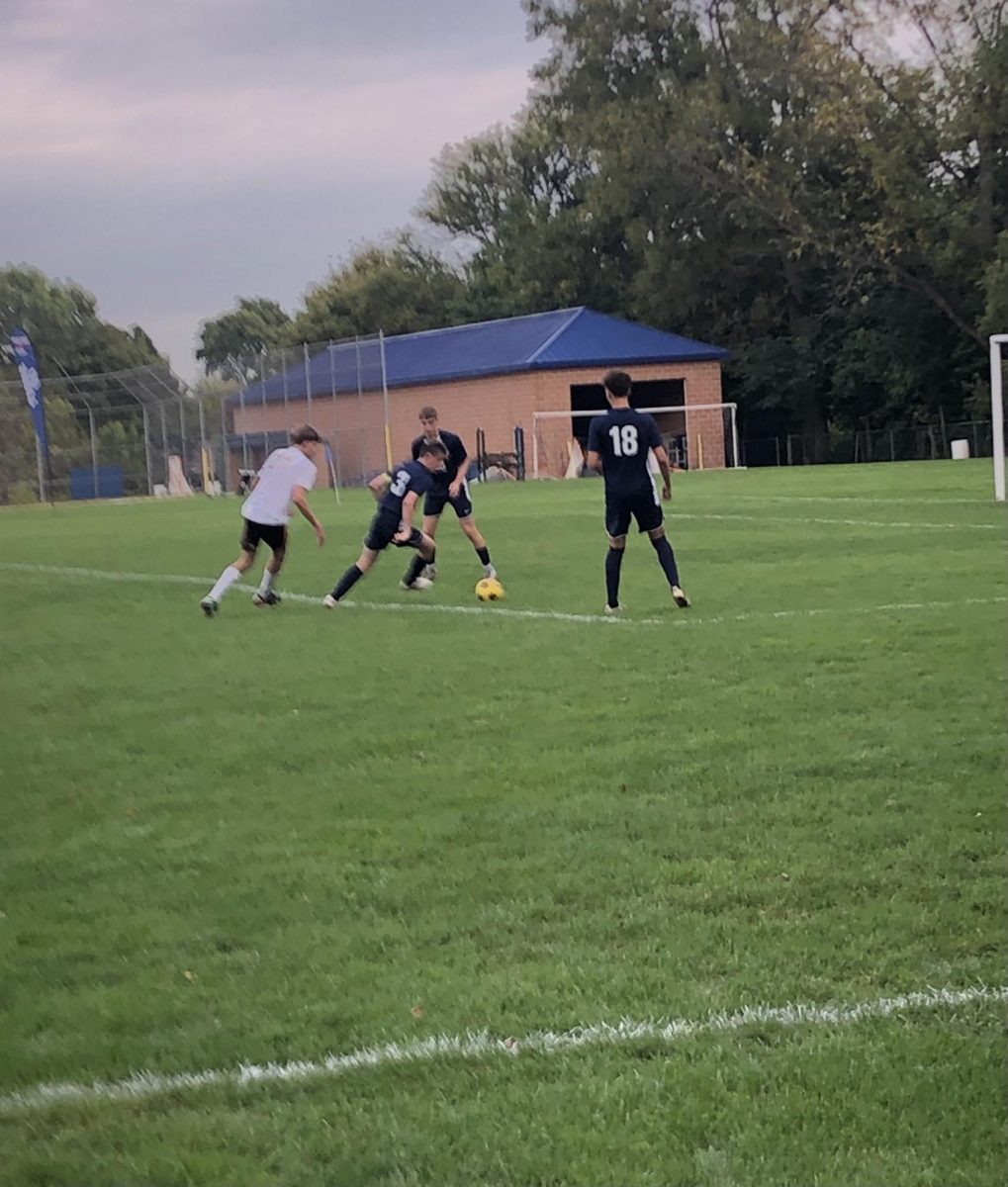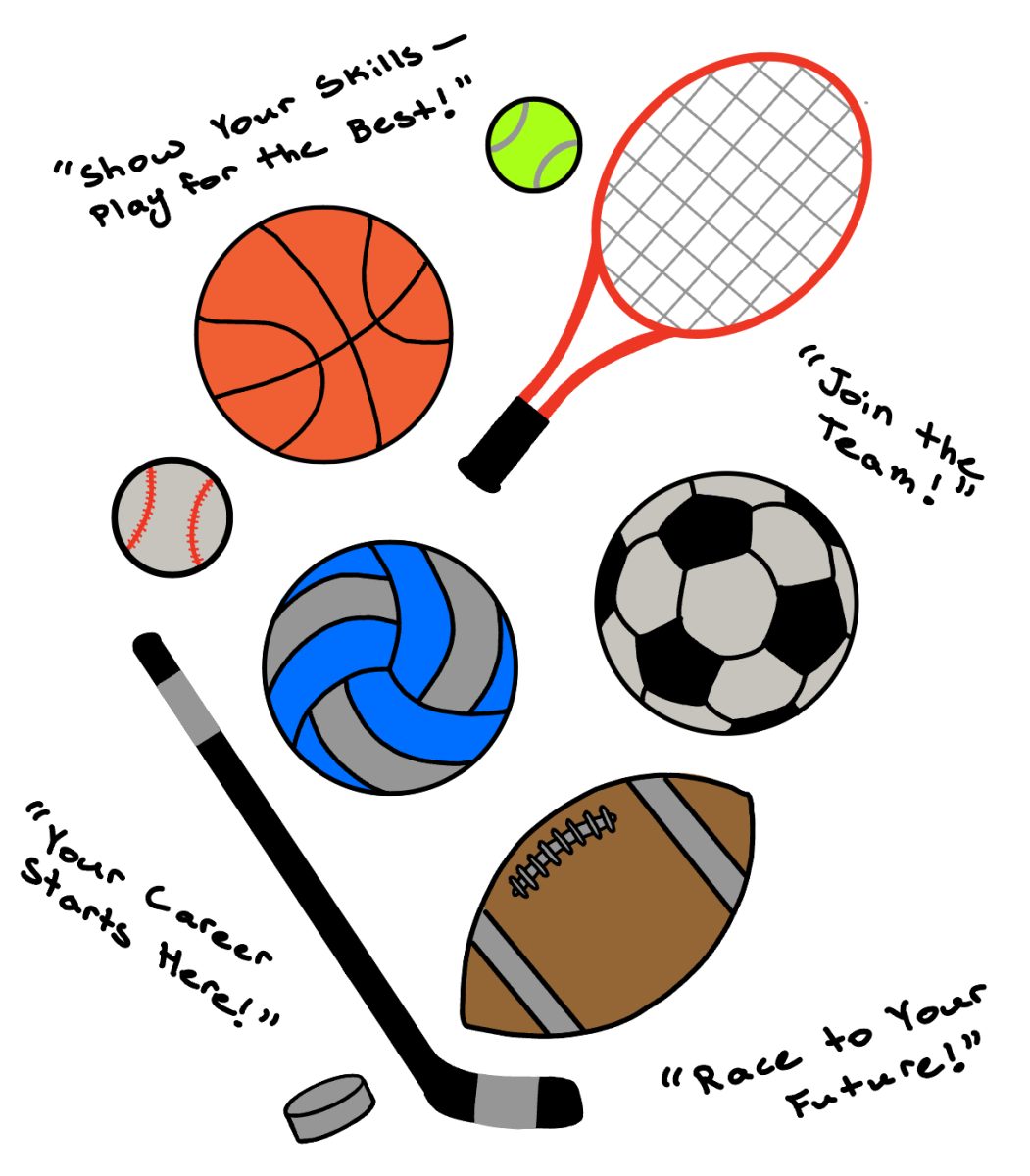Most sports are during a specific season: there’s winter, spring, summer and fall sports. Young athletes participate in various sports throughout these seasons. When those athletes aren’t busy studying for classes, they are busy lifting weights to improve their strength or trying to maintain their social life. As one season ends, another one is just beginning. A study from the National Institute of Health said that 91% of high school athletes experience stress from participating in sports. Multi-sport athletes have to manage their sports, but they also have to manage their stress.
“It can be extremely stressful having to do my school work while still balancing all of the games and practice I have,” said senior student-athlete Kyli Ziebka. “I play soccer for a club and golf in one season. On top of the school work, it makes for little to no time to do anything I want to do outside of school.” The relentless pressure faced by multi-sport athletes can feel overwhelming, making it difficult to cope, especially without a solid support system like coaches and parents.
“Overall, I would not have changed a thing, though. I loved playing sports through Viator the past 4 years. I love all the coaches I have, and I think without them, I wouldn’t have stayed with my sports as long as I did,” said Ziebka.
Along the stress that comes with being a multi-sport athlete, there are also expectations within each sport. Those expectations often converge, affecting athletes’ mental health. The topic of athletes’ mental health is usually an unspoken topic, even though it is so prevalent. A recent study on athlete mental health conducted by the NCAA shows the “rates of anxiety and depression have seen little change and remain 1.5 to 2 times higher.” While all athletes deal with mental health issues, multi-sport athletes face multiple struggles across their sports.
In addition to academic pressures, multi-sport athletes face performance expectations. Mental health is a huge problem; under-performing usually feeds those problems. Performance abilities can really affect a multi-sport athlete’s mindset. After under-performing in one sport, they have to focus on how to improve in their next sport, and so on. That is a very lonely cycle to be in, and when an athlete gets stuck in it, the confidence they lose is hard to regain without help. In some cases, when athletes are playing all year round, it can cause them to lose the passion they had for sports.
“Someone has to assess whether they really can handle everything academically … co-curricularly … [and] athletically,” said Assistant Athletic Director and Head Varsity Football Coach Dave Archibald. “I strongly support students being involved in a range of opportunities, but I think there are times in which some students are trying to do too much.” This pressure leads to multi-sport athletes quitting all of their sports, ending their athletic careers.
The increase in training and competition is a major concern. Athletes who participate in more than one sport at a time need time off so their bodies can recover well. A study conducted by PubMed Central showed that athletes who trained for sports more hours per week had a higher risk of injuries. Multi-sport athletes must manage multiple sports each week and sometimes even in a single day. Balancing their commitments can feel like a juggling act, and, when injuries come around, it can feel so overwhelming.
“Injuries in one of my sports affects me because then I can’t play in any of my other sports. One injury affects every sport I do,” said freshman Ava Garcia. Getting injured means that those athletes get sidelined in all of their sports.
Despite the hardships of being a multi-sport athlete, there are also some benefits. Participating in multiple sports builds a solid foundation of motivation and mental strength. Athletes involved in multiple sports also set themselves up for success in leadership roles. They have to think about solutions to different situations in different sports and apply them. They will build leadership skills when they start to apply those skills. Playing multiple sports helps to enhance teamwork by being on different teams with different people. Athletes have to adjust to the abilities of their teammates in different sports. Playing multiple sports makes an athlete face lots of adversity, but it also gives room for growth and the discovery for the love of sports.
Multi-sport athletes, multitudes of struggles
Donate to Viator Voice
$50
$500
Contributed
Our Goal
Your donation will support the student journalists of Saint Viator High School. Your contribution will allow us to purchase equipment and cover our annual website hosting costs.









